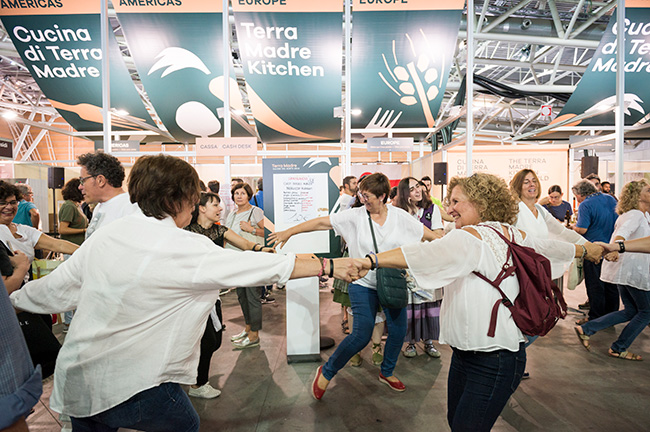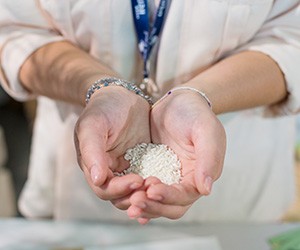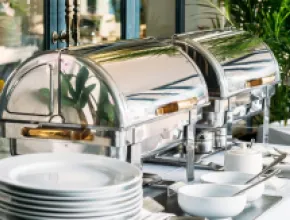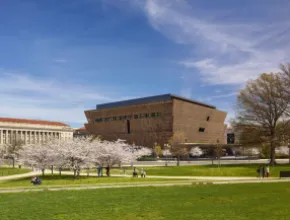From September 19-24, 2018, I was immersed in the Terra Madre Salone Del Gusto slow food exhibition in Turin, Italy.
As one of more than 250 U.S. delegates, I was attending local and traditional food preservation organization Slow Food’s biennial event, which brings together international food producers, communities, chefs and visitors to celebrate good, clean and fair food.
The end goal of those attending the event? To better understand how food plays a role in our health, our culture, our communities and our diversity.
What I came away with was so much more.
For the 12th edition of Terra Madre Salone Del Gusto, Slow Food asked all of its participants to consider the concept of Food for Change.
Through hundreds of exhibits, workshops, learning experiences and talks, the event fostered a dialogue on global food choices, inspired change around food habits by asking us to consider the following:
- What food production methods do you support?
- What do you cook?
- What do you put in your shopping cart?
Each and every day the food we choose—including what we order as meeting professionals—brings up many questions related to not only to our health, but also to the environment, social justice, economics, politics and many other issues that impact our world.
As I sat through workshops and tasting sessions on sugar, vegetarianism, food waste, spirituality and meat, I contemplated the tremendous responsibility and influence meeting professionals have on the food we serve.
Food Brings People Together and Builds Relationships

People Holding Hands in a Dance at Terra Madre Salone Del Gusto
We spend billions of dollars each year on food and beverage at events—more than $65 billion annually in the U.S. alone*. The enormity of the food and beverage we purchase, prepare and consume at events positions us with a tremendous opportunity and an obligation to be part of a conversation around Food for Change.
Food is essential for each and every one of us, but it is also an essential tool that brings people together and creates community. Food is not only for eating together, but for creating some proper relations: farmer to the chef, chef with the customers and customers with their families and communities.
[Related Content:
- Wolfgang Puck's Eric Klein Shares Insights on Culinary Wellness
- Benchmark Names Top 10 Dining Trends for 2019]
Much more than just another fancy international food show, Terra Madre Salone Del Gusto positions food itself as a bridge to cross-cultural understanding and peace.
“At Terra Madre we have 140 countries represented,” said Ludovico Roccatello, international councilor for Italy of Slow Food. “You have all kinds religions and languages, and still we understand each other. Because we have food around it. If this is the world we want, then food can be the tool to build it.”
The same can be said of the millions of events we plan each year.
How can you use food to inspire change at your next event?
Five Ways to Use Food As a Tool for Change at Your Next Event:
- Food as a Tool for Health. An unhealthy diet is one of the most common reasons for death and disease around the world. “We are what we eat and we become what we eat. We are also HOW we eat,” says Eija Tarkiainen, a Finnish researcher of holistic disciplines and curator of cultural projects in Food, Health and Spirituality. For meetings and events, we can provide fresh, locally sourced food, preferably organic and biodynamic to enhance attendee health.
- Food as a Tool for Community: Devote more time to meals, offering participants the chance to build a community among themselves over a meal and a conversation.
- Food as a Tool for Diversity: Slow Food founder Carlo Petrini summed it well when he said, “Food is not uniform; on the contrary, its diversity is very strong.” Instead of serving the same food from one event to the next, offer experiences to learn and enjoy the diverse foods unique to the country, region and town your meeting is in.
- Food as a Tool for Education: Whether you host cooking classes, taste workshops, provide signage about the food you’re serving or support the local community with food donations, educate attendees about the food they are eating, how it impacts the community and their own lives. Also, check out what farmer Rodney Spencer of Oakland, California’s City Slicker Farms and famed chef Alice Waters, founder of the Edible School Yards program are doing to transform children's relationship with food. Both programs demonstrate to children what's possible. How can we follow their models at events?
- Food as a Tool for Culture: Gastronomic experiences are an integral part of tourism, hospitality and culture. Figure out a way to incorporate local food artisans, cooks, producers and farmers into your event to share their stories, traditions, flavors and craftsmanship and help attendees delve deeper into the local culture. Check out Slow Food Travel and be on the lookout for Slow Experiences—Slow Food cultivated and approved experiential tourism that gives voice to good, clean and fair producers from all over the world—soon to be on the Airbnb Experiences platform.
*Economic Significance of Meetings to the U.S. Economy Report, ©2018 Events Industry Council
As a speaker, author, consultant and event planner, Tracy Stuckrath is passionate about safe and inclusive F&B that satisfies everyone’s needs. For more information, visit www.thrivemeetings.com.






